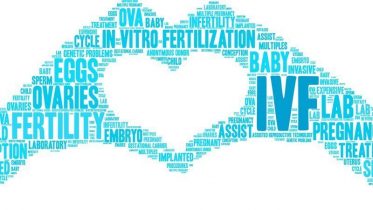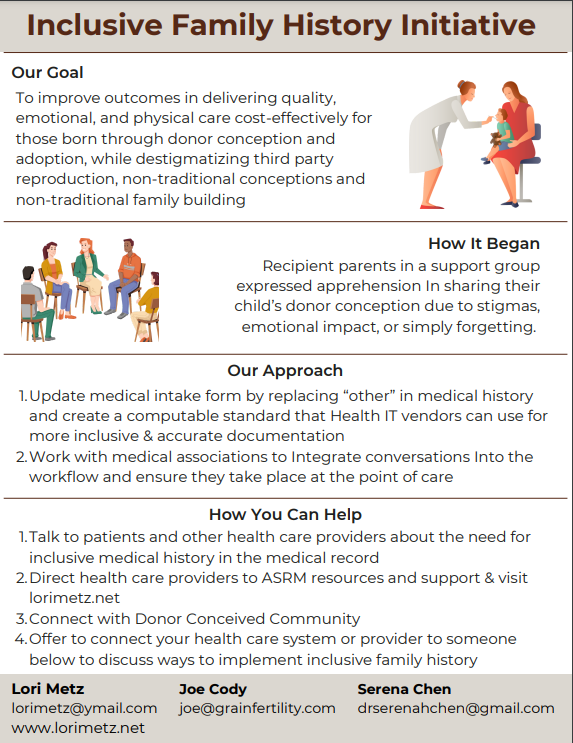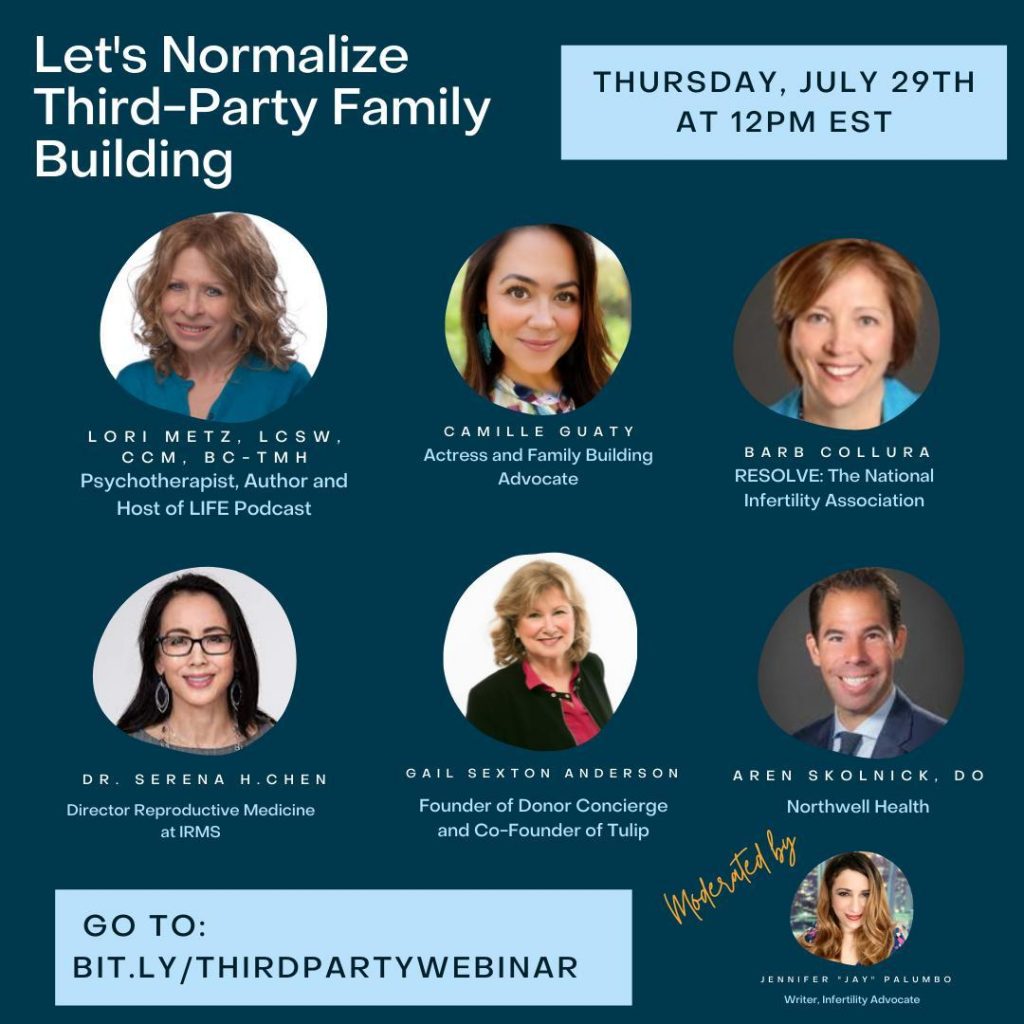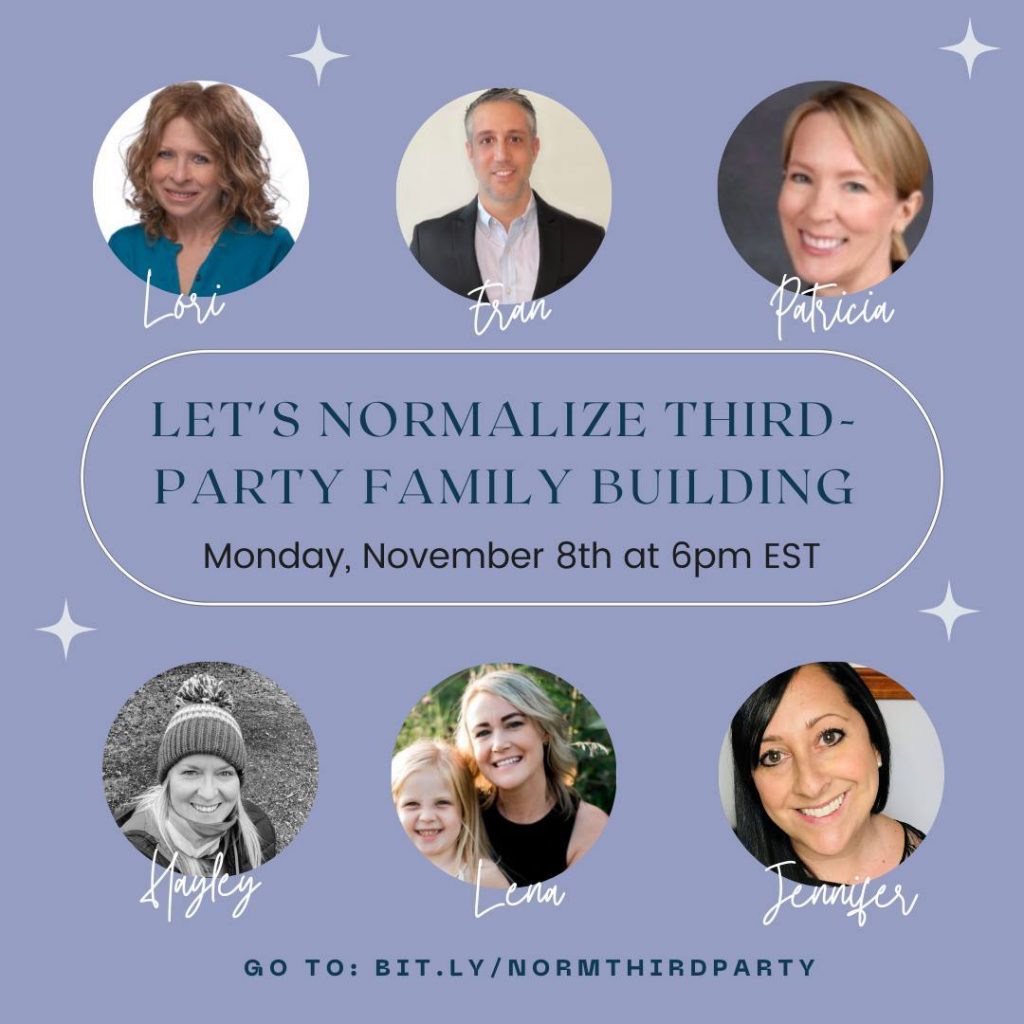It takes three things to make a baby, an egg, a uterus, and sperm.
No matter who you are, no matter where you are from, we are all created the same way.
As I worked with people born through third-party reproduction, raised through adoption, or carried by a surrogate, it became clear that a need to be comfortable and confident in one’s birth story could be a struggle.
Donor conception and surrogacy births are rapidly increasing. Still, society, including the medical community, is not embracing this type of conception in a way that allows those impacted to feel normal and accepted. This is something those adopted experience as well.
Third-party reproduction can elicit a wide array of feelings. So how do we normalize it? Let’s start by opening up the conversation in the medical community to improve health outcomes.
An Inclusive Medical History encourages the medical community to help everyone feel comfortable sharing their birth story when accessing medical care and to ensure optimal care

Let’s take donor conception and adoption out of the shadows
and improve medical and mental health in the process.
When taking a family history and asking about mother and father, let’s include donor and adoption. This can help those treating the person and those being treated to feel welcomed and not trigger a reason to lament. Having these two additional words will also help normalize the conversation by just being there for everyone to see.
Consider how this simple change could reduce and ideally eliminate any stigma associated with these types of journeys enhances the lives touched by third-party reproduction and improves health outcome

What’s Happening
We are on our way!
In Oct. 2023 the Inclusive Medical History at the first American Society of Reproductive Medicine (ASRM) Soap Box series held earlier this year. This event was created to highlight those who have made an impact through advocacy. Dr Serena, medical lead, Joe Cody, technology expert, and I. We shared how the Inclusive Family History concept came to be and made its way onto the global stage! The two-pronged approach is to capture information at the point of care by adding indices on the medical intake form and to educate the provider community on being comfortable and confident in speaking with patients who were either donor-conceived or adopted.
To date, the Global Alliance for Genomics & Health (GA4GH) has been working to standardize clinical data description, with a particular focus on family health history information. We met with this group in their discovery phase of understanding how families come to be in a variety of ways (donor conception, adoption, stepfamilies, to name a few, and how one’s origin impacts a person’s medical history. They have expanded this section of the medical intake and are including donor conception and adoption in the database. They have determined all the fields for the medical history section and are now in the operationalizing phase. The hope is that this will be done towards the end of 2024.
We were also invited to meet with ASRM’s Donor Task Force. They were welcoming and optimistic about the Inclusive Family History initiative. They will be following up on ways to engage the provider communities in all types of medical fields, including pediatrics, cardiology, gastroenterology, and more, in 2024.
With all this said, it is a pleasure to report that the addition of donor conception and adoption to the medical intake portion of the electronic medical record history screens and intake process is well underway, and the impact will be profound for those impacted. A special thank you to those in my support group who highlighted the need for change in how medical history information is obtained and recorded in order to provide quality care that meets the emotional and physical needs in an optimal manner.



